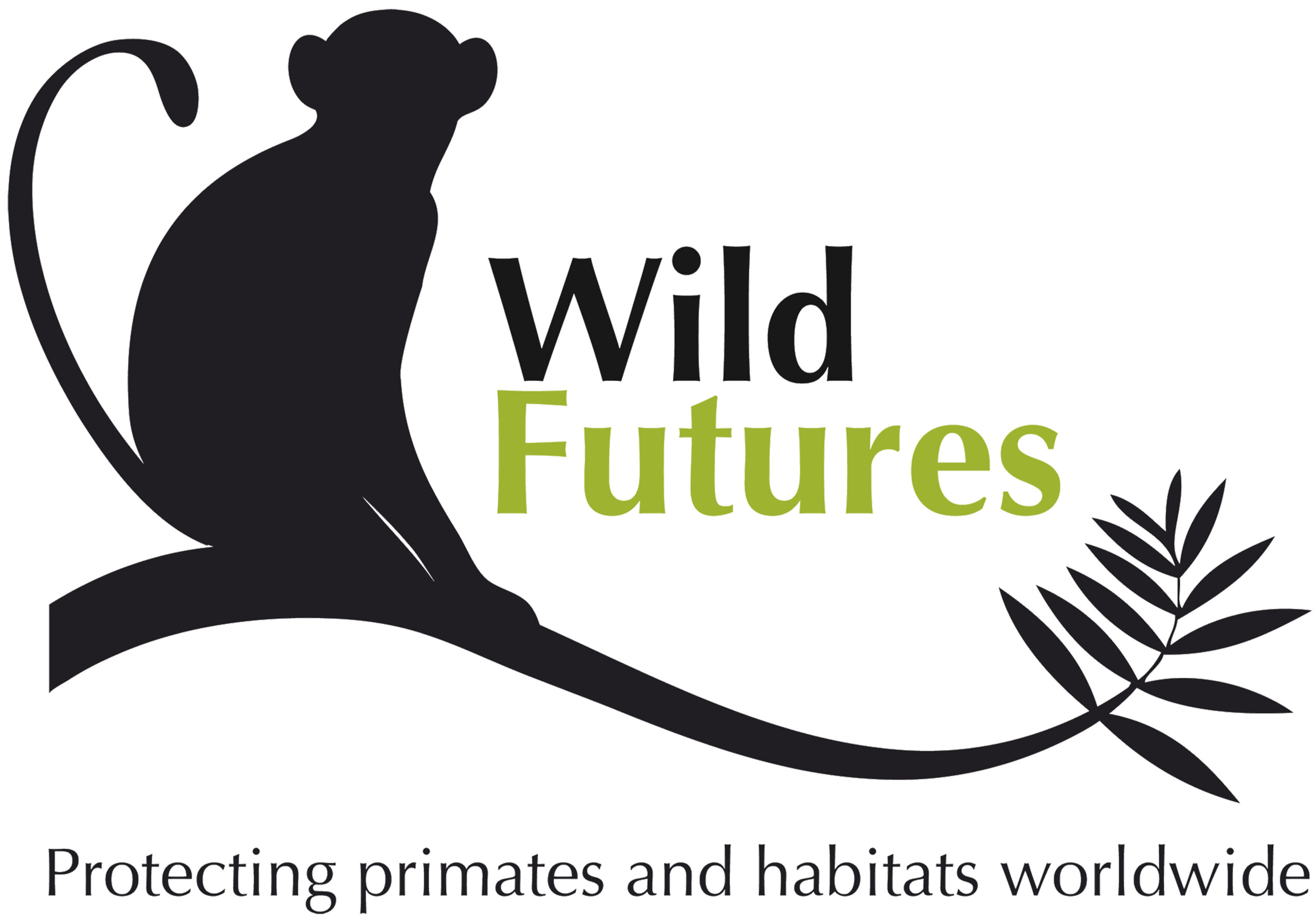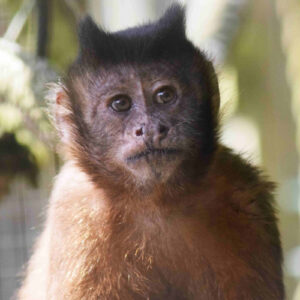Kiwi
Species: Black-capped Capuchin (Sapajus apella)
Who is she? The Tiny Whirlwind
Special skills: Trying to catch the eyes of all the handsome capuchin boys at the sanctuary
Adopt Kiwi
- From: £3.00
- Select options This product has multiple variants. The options may be chosen on the product page
- From: £48.00
- Select options This product has multiple variants. The options may be chosen on the product page
ADOPTIONS ARE PURELY SYMBOLIC. WE DO NOT SELL PRIMATES AND WILL NOT OFFER ANY ADVISE REGARDING PURCHASING A WILD ANIMAL. By purchasing a symbolic monkey adoption, you are agreeing to our Terms and Conditions.
Species: Black-capped Capuchin (Sapajus apella)
Who is she? The Tiny Whirlwind
Special skills: Trying to catch the eyes of all the handsome capuchin boys at the sanctuary
Kiwi arrived at The Monkey Sanctuary in 2010 along with two other monkeys, including her mother, Gizzie. The small group had been kept as pets in a breezeblock outbuilding for many years.
The relentlessly cold and damp conditions had left her with painful arthritis and she was very underweight. However, with specialist care, her health has improved dramatically and she is now thriving.
Her new surroundings allowed her natural behaviours to blossom. She loves involving herself in the politics of neighbouring monkey groups and can often be found shouting support (or abuse!) across the enclosures!
Kiwi has a very strong bond with the other monkeys in her group, and, thankfully, she doesn’t really care for human interaction – unless there is a chance of a grape!
Kiwi has overcome a lot, and is lucky amongst ex-pet primates to have spent her life alongside her mother – infants are usually forcibly removed from their mothers. She is a friendly and outgoing monkey who loves making new friends to play with!
Adopt Kiwi
- From: £3.00
- Select options This product has multiple variants. The options may be chosen on the product page
- From: £48.00
- Select options This product has multiple variants. The options may be chosen on the product page
ADOPTIONS ARE PURELY SYMBOLIC. WE DO NOT SELL PRIMATES AND WILL NOT OFFER ANY ADVISE REGARDING PURCHASING A WILD ANIMAL. By purchasing a symbolic monkey adoption, you are agreeing to our Terms and Conditions.

